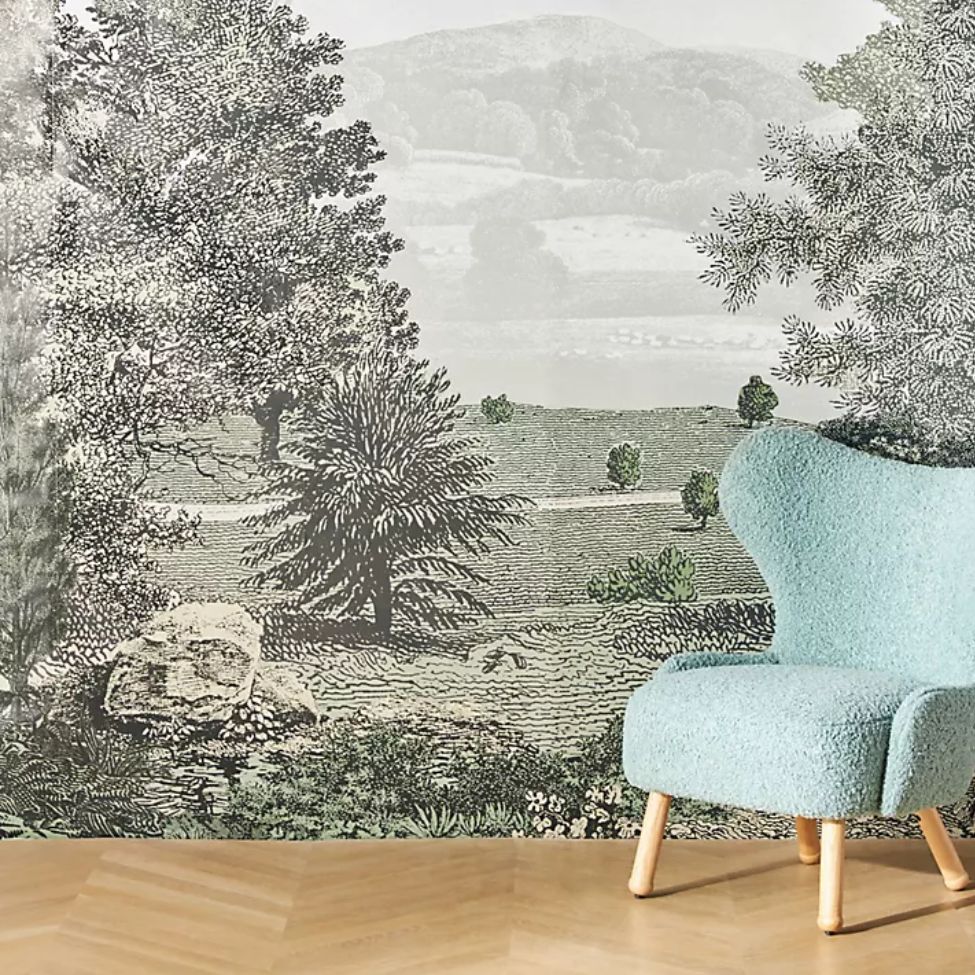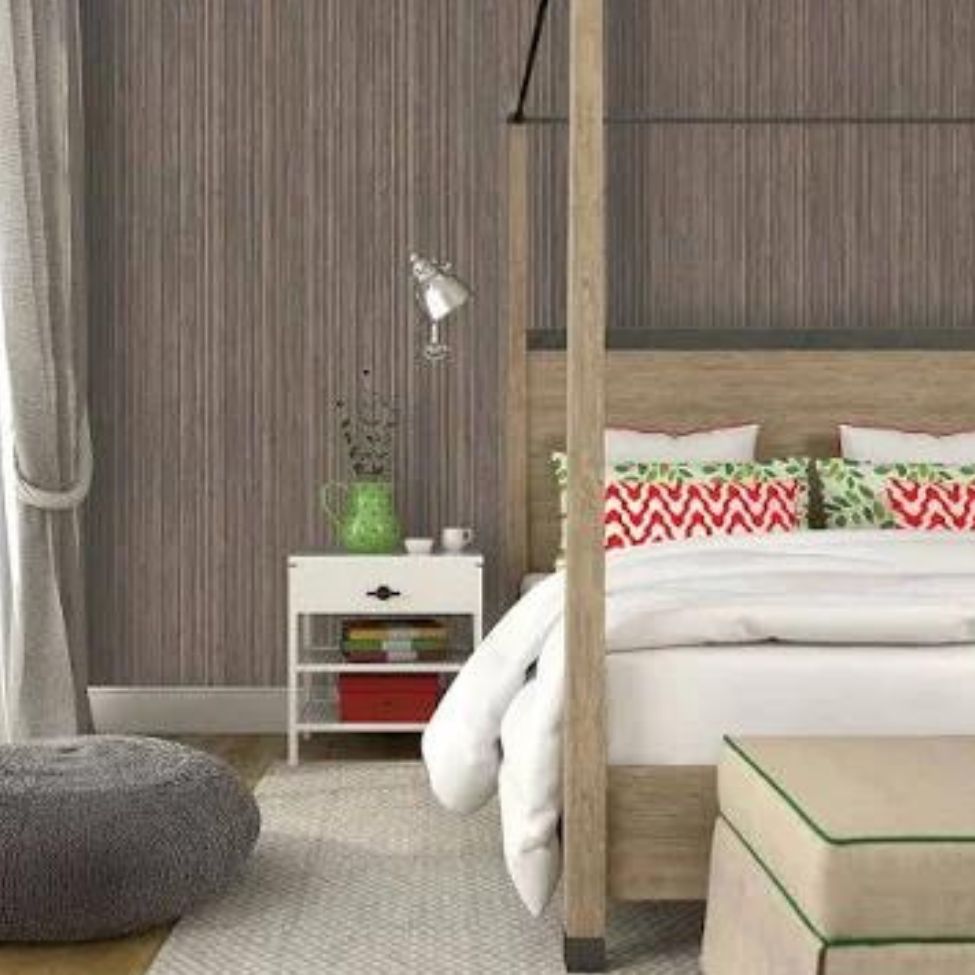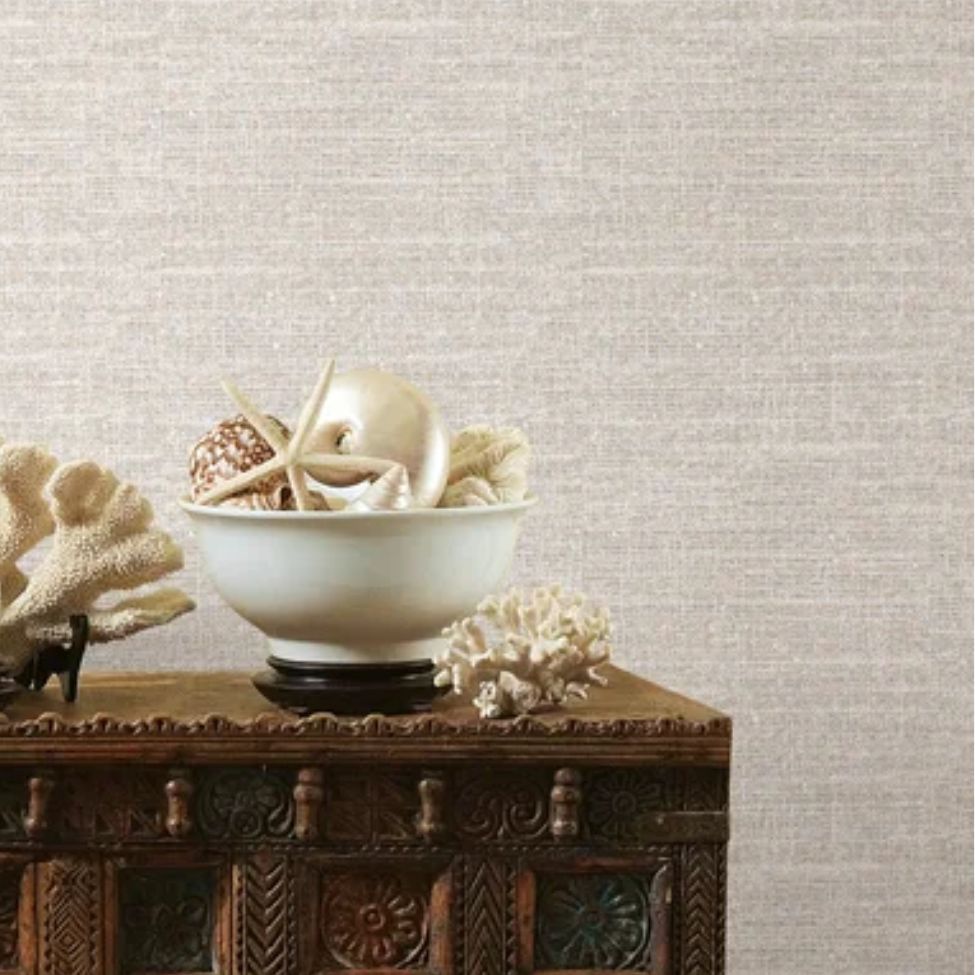"Wallpapered Doors" Are Trending — And It's the Answer to Making Your Home's Storage Look Beautiful
Turn built-ins into a canvas for bold, brilliant design, and create hidden spaces using magical murals and wallpapers
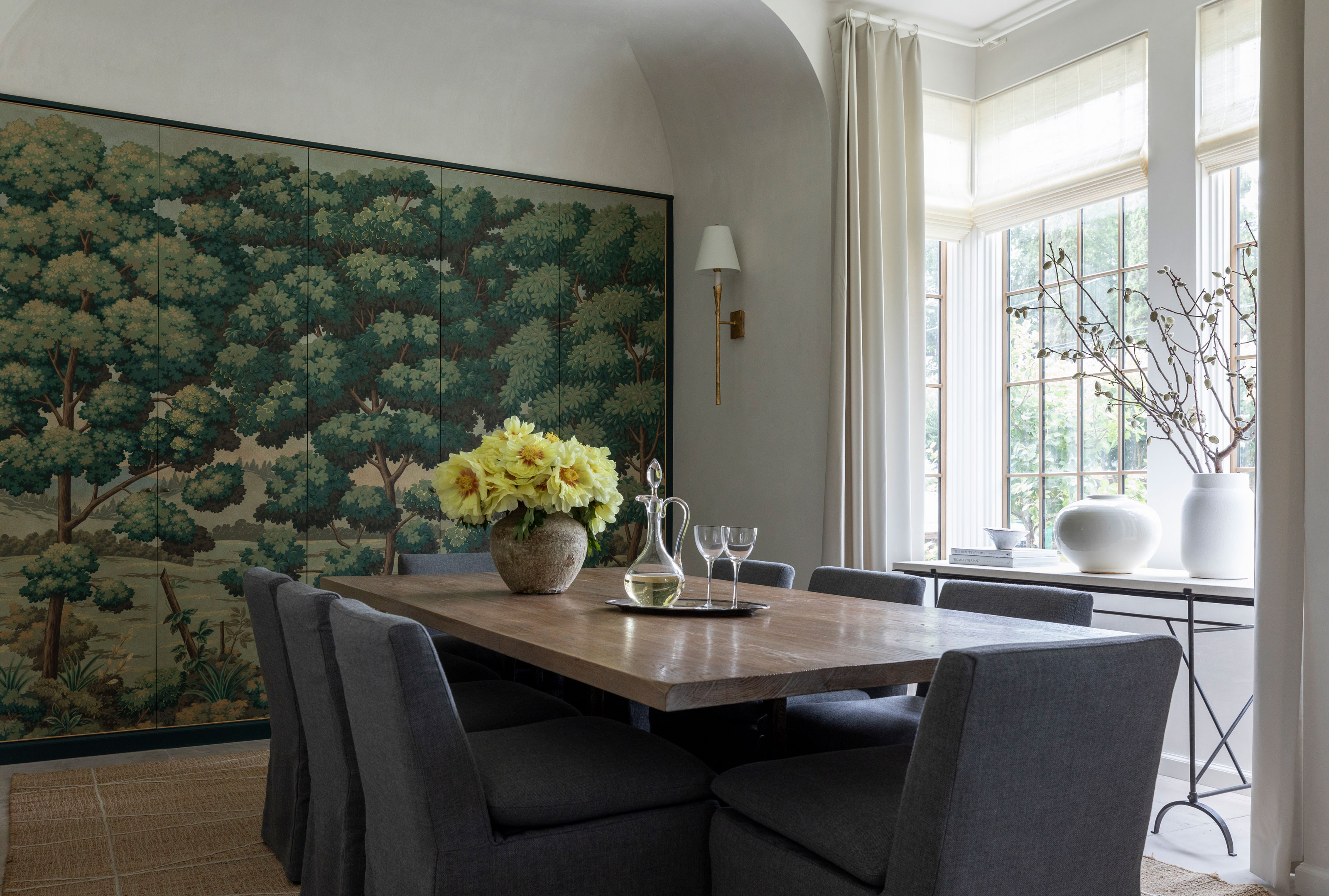

Seeing creative projects using paint and wallpaper always inspires me the most. They're such foundational building blocks that everyone uses in their homes, and to see how they can be used in innovative ways always makes me want to redecorate.
Right now, wallpapered doors are trending — I keep spotting them everywhere I look. And while it's not exactly a new idea (I've seen wallpapered doors in many a very old house), there's something about how designers are using this concept now that is really speaking to what we want from our homes — a lot of storage, but not to feel like we're just living in a storage container.
After all, using wallpaper for doors isn't only about striking good looks — it's also a way to disguise entryways or storage, using the wallcovering to enact some clever hidden door ideas. Where you've got multiple doors side by side, be it a hallway or even a closet, suddenly, when installed in the right way, you're just looking at a beautiful mural, rather than banks and banks of uninspiring, blank facades.
Here, I've gathered up some of the most beautiful inspiration for wallpapered doors, as well as getting advice from designers who use them in their projects about what type of wallpaper to choose, the pros and cons, and breakdown some of the practicalities for installing it.
Why Are Designers Choosing Wallpapered Doors?
We're seeing this wallpaper trend used in a few different contexts — often for storage doors, but also as a way to streamline a room, and make certain architectural elements disappear.
"Using wallpaper to cover doors is an inspiring idea because it transforms a typically overlooked element into a focal point," says Houston-based interior designer Marie Flanigan. "It adds a layer of unexpected texture and pattern, creating a cohesive design flow between walls and doors."
"This approach can make a space feel more unified and thoughtfully designed, allowing the door to become an integral part of the room’s aesthetic rather than just a functional element," Marie adds.
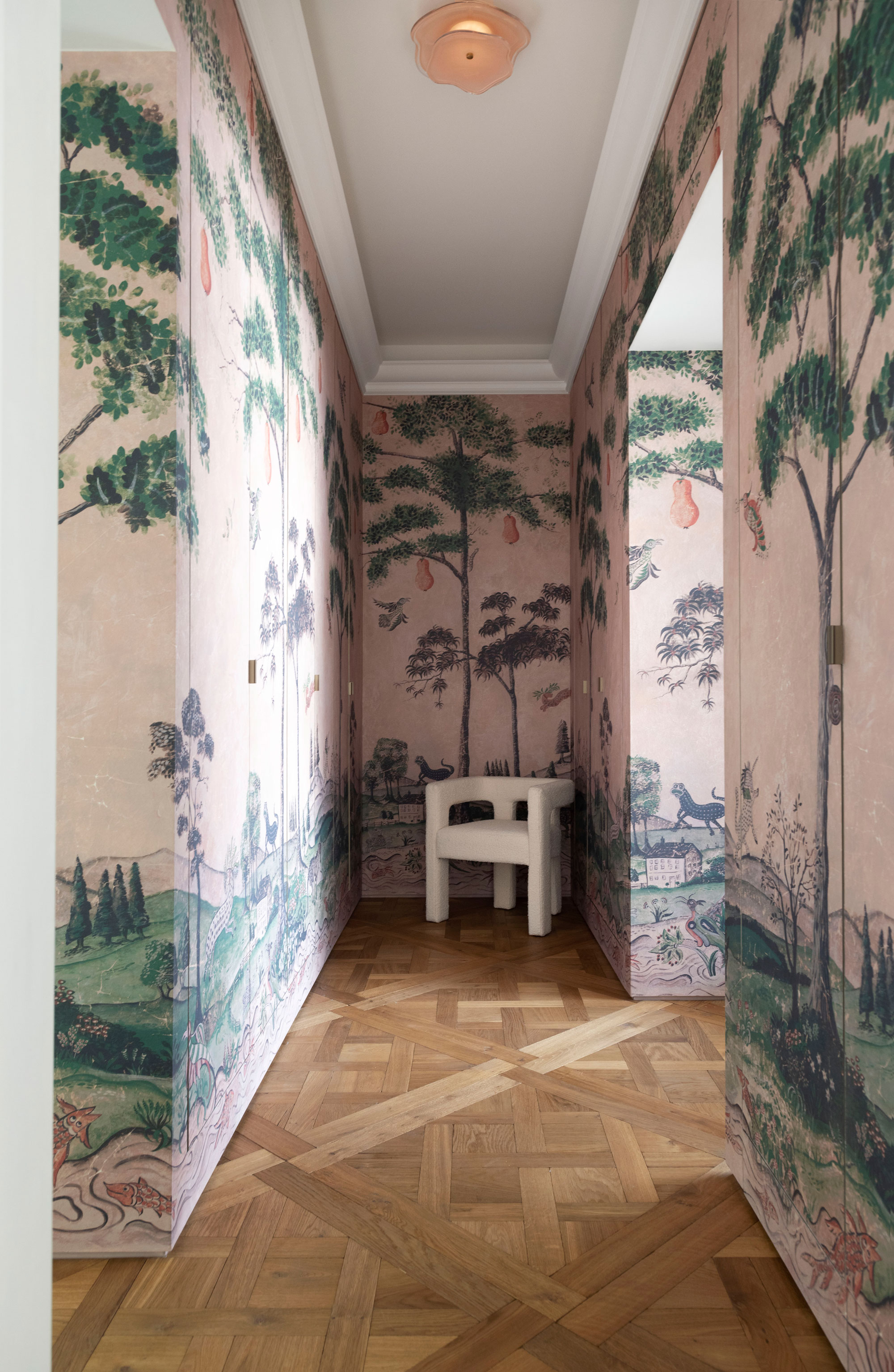
This seamless look is certainly the goal, and designers are going to great lengths with installation to get this right. For Hanne Gathe, founder of Gathe + Gram, this attention to detail was key for this modern hallway idea.
"The client had her eye on this wallpaper from the beginning and wanted a seamless hidden look," Hanne tells us. "It took a lot of tests with our joiner to come up with a door design with near invisible frames. We ended up creating a slim metal frame for the doors to protect the edges of the paper and had a professional hang it on site for a perfect finish."
"In this instance we used paper, which requires more care," Hanne explains. "The wallpaper is 'Mythical Land Daybreak' from Andrew Martin."
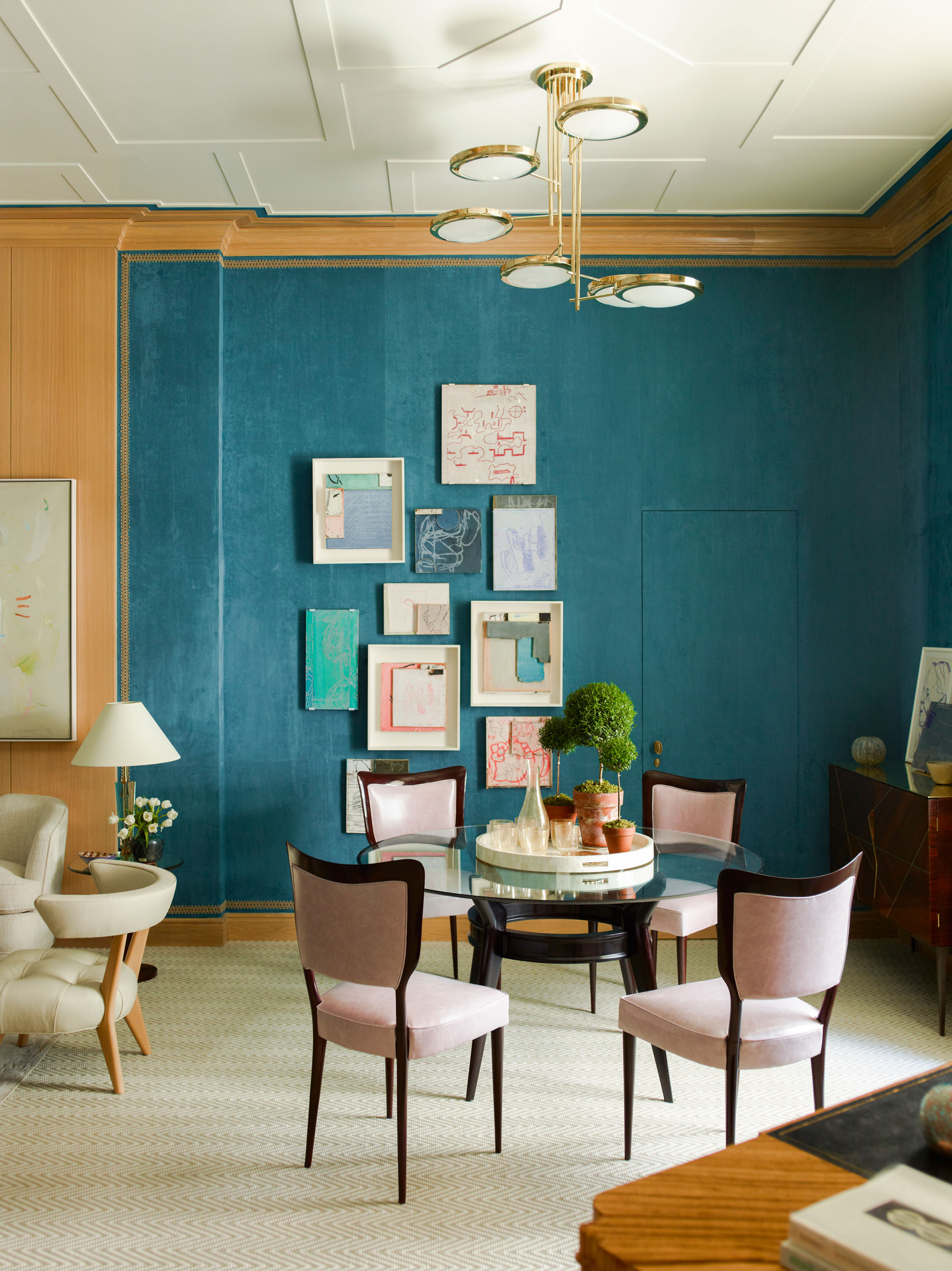
And it's not just storage doors where wallpaper can make a design impact. It can be used to hide internal doors, too, as in this design by Gideon Mendelson, founder and creative director at Mendelson Group.
"Wallpapering the door keeps it hidden, where a contrasting paint color would have done the opposite," Gideon explains. "This room had formality in its architecture and furniture choices so we chose a teal suede wall covering to "break up" the preciousness. You see every imperfection in the suede, which makes the entire space feel more approachable."
What Type of Wallpaper Works Best?
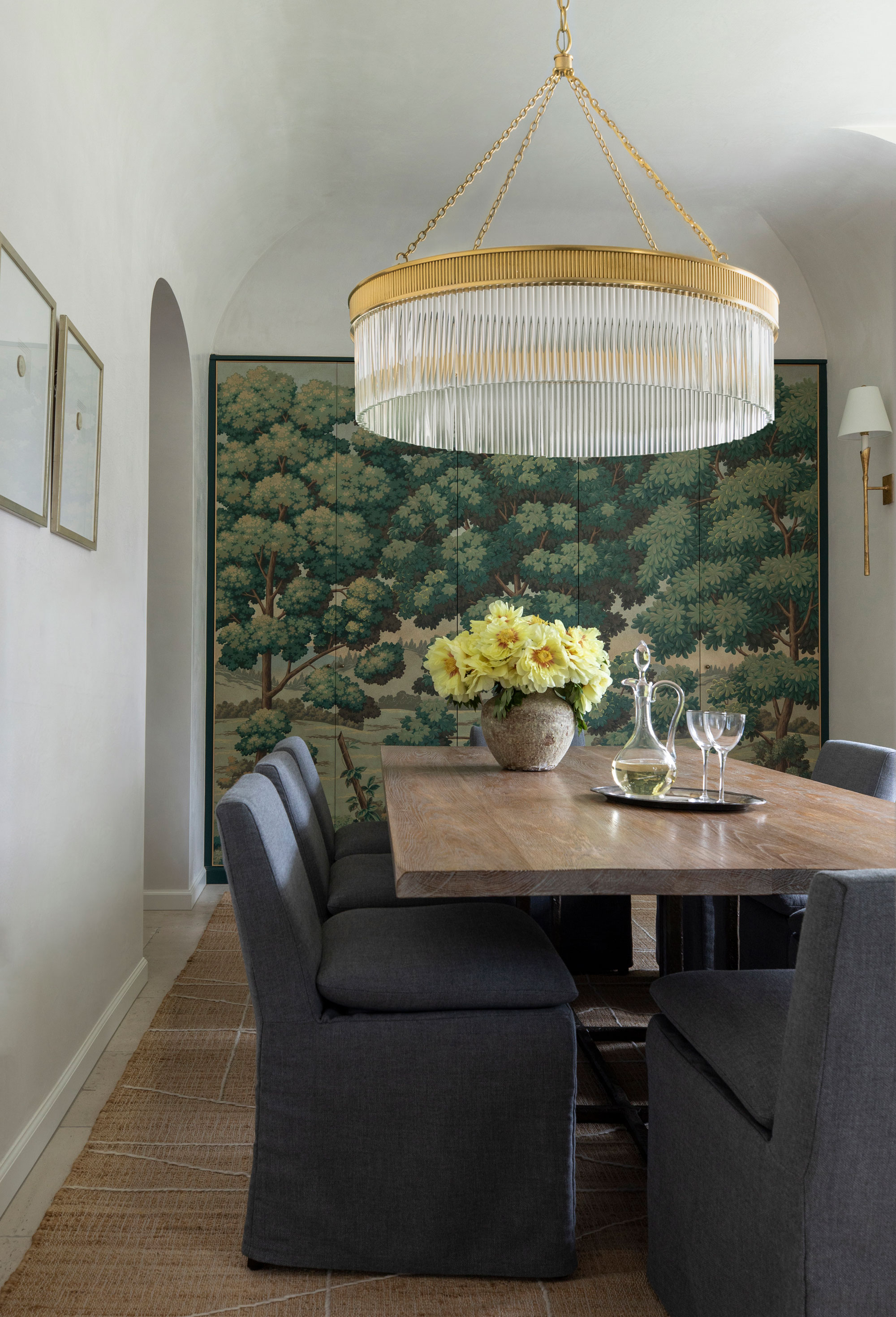
Of course, where wallpaper used on walls isn't so interacted with, bar the occasional person brushing past, doors are a much more hands-on design feature. With that in mind, you may want to avoid standard wallpapers for wallpapered doors.
"When choosing a wallpaper for doors the ideal choice is either a textured wallpaper, like a grasscloth wallpaper, or a vinyl for strength," says Hanne Gathe. "Paper wallpapers are beautiful, but also the most delicate and require more care — I would recommend treating the wallpaper with a layer of matte lacquer for more durability." I swear by this Polyvine Decorator's Dead Flat Varnish, that you can find on Amazon, for this sort of job.
Pros and cons
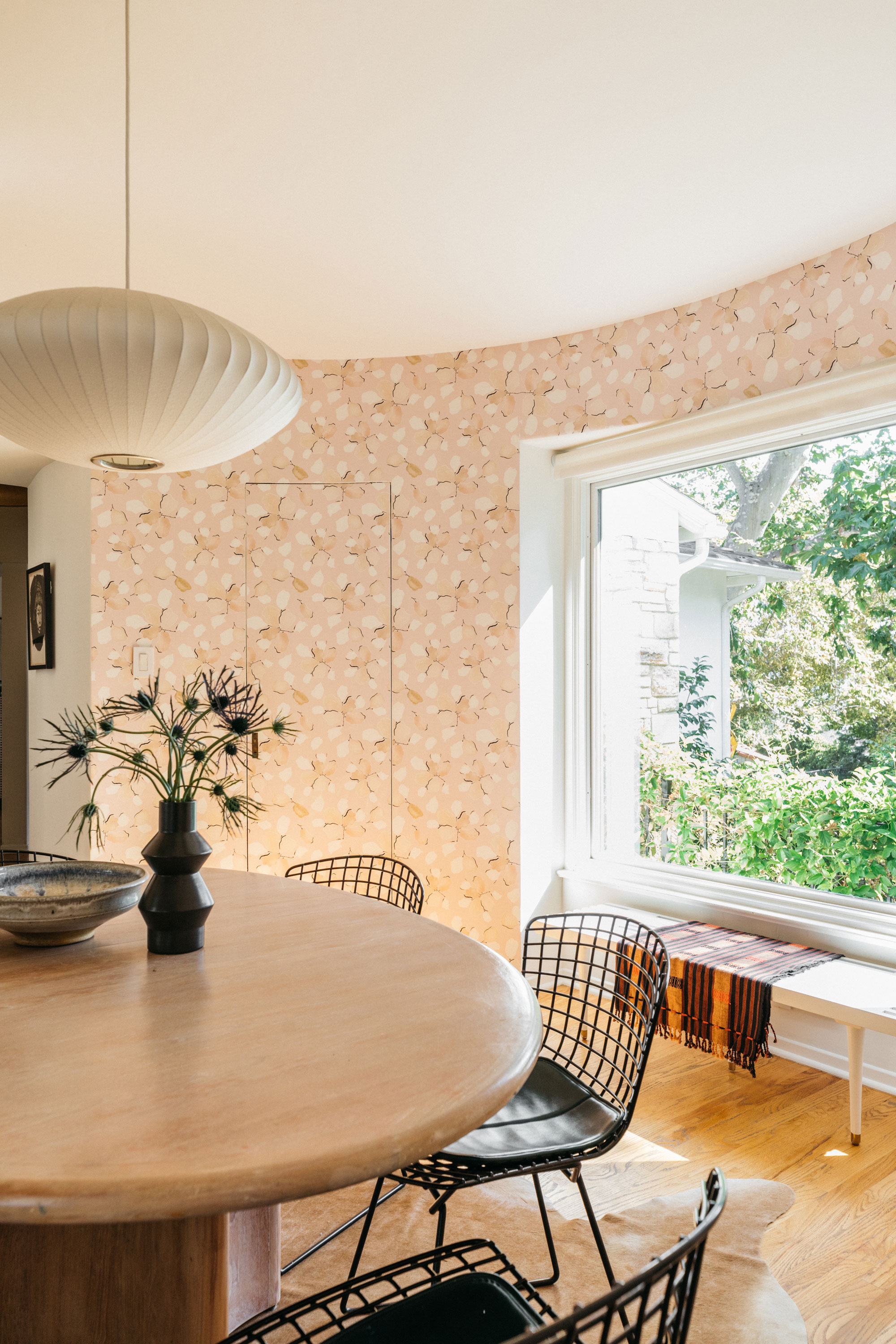
As mentioned, there are pros and cons to wallpapered doors, especially when it comes to durability and how to hang the wallpaper.
But let's start with the good news. "Wallpaper can elevate the look of a door, making it a seamless extension of the room’s decor," Marie says. "With countless designs and patterns readily available, wallpaper can suit any style, from modern to traditional. It allows for unique, personalized customization that can reflect the homeowner’s personality."
In terms of drawbacks, there are some considerations to keep in mind. "Wallpaper on doors may be more prone to wear and tear due to frequent use," Marie says. "It can also be more challenging to clean and maintain compared to paint or solid surfaces. Ensuring a smooth, wrinkle-free application on doors, especially those with panels or intricate details, can be more difficult, too."
If you're not choose a trim, as Hanne did in the design previously mentioned, you need to considered this during installation. "Because a concealed door has no casing, you need to be careful with wallpaper," Gideon tells us. "When not installed properly, it can rub against the door jamb and start to pull off the door. You need a great wallpaper hanger!"
Murals for wallpapered doors
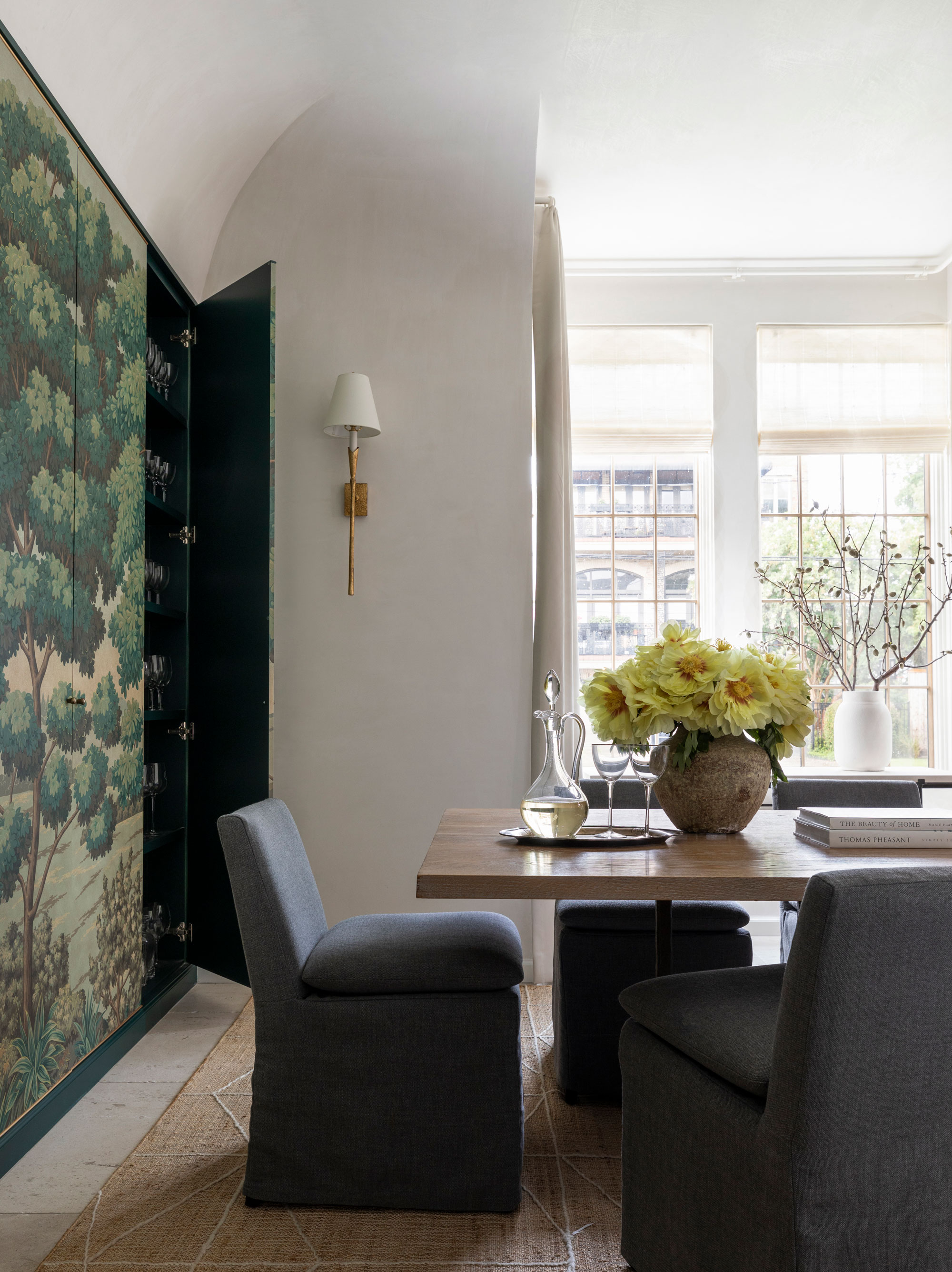
The most exciting uses of wallpapered doors are undoubtedly those that use bold, expressive wall mural ideas. But, if you thought that using normal wallpaper sounded tricky, murals represent another issue altogether.
"A mural on doors is a striking design choice that can serve as a captivating and bespoke visual statement," says Marie, "but murals are typically customized to fit the dimensions and design of the doors, ensuring a perfect alignment and coherent visual flow."
"The mural is usually applied in a similar manner to wallpaper, but with extra attention to matching the design across door panels and frames," the designer adds. "This might involve custom printing and precise cutting to ensure the artwork is continuous and correctly aligned. Typically, the mural can be sized to fit the doors."
"Overall, while a mural on doors requires meticulous planning and execution, it offers a unique and artistic touch that can significantly enhance the character of a space," Marie concludes.
A post shared by Marie Flanigan Interiors (@marieflaniganinteriors)
A photo posted by on
Can I Use Peel and Stick Wallpaper on Doors?
Yes, for an easier DIY version of the wallpapered door idea, that's renter-friendly, too, you can use peel and stick wallpaper panels, cut to size.
Here are a few of my favorites, below:
Be The First To Know
The Livingetc newsletters are your inside source for what’s shaping interiors now - and what’s next. Discover trend forecasts, smart style ideas, and curated shopping inspiration that brings design to life. Subscribe today and stay ahead of the curve.

Luke Arthur Wells is a freelance design writer, award-winning interiors blogger and stylist, known for neutral, textural spaces with a luxury twist. He's worked with some of the UK's top design brands, counting the likes of Tom Dixon Studio as regular collaborators and his work has been featured in print and online in publications ranging from Domino Magazine to The Sunday Times. He's a hands-on type of interiors expert too, contributing practical renovation advice and DIY tutorials to a number of magazines, as well as to his own readers and followers via his blog and social media. He might currently be renovating a small Victorian house in England, but he dreams of light, spacious, neutral homes on the West Coast.
-
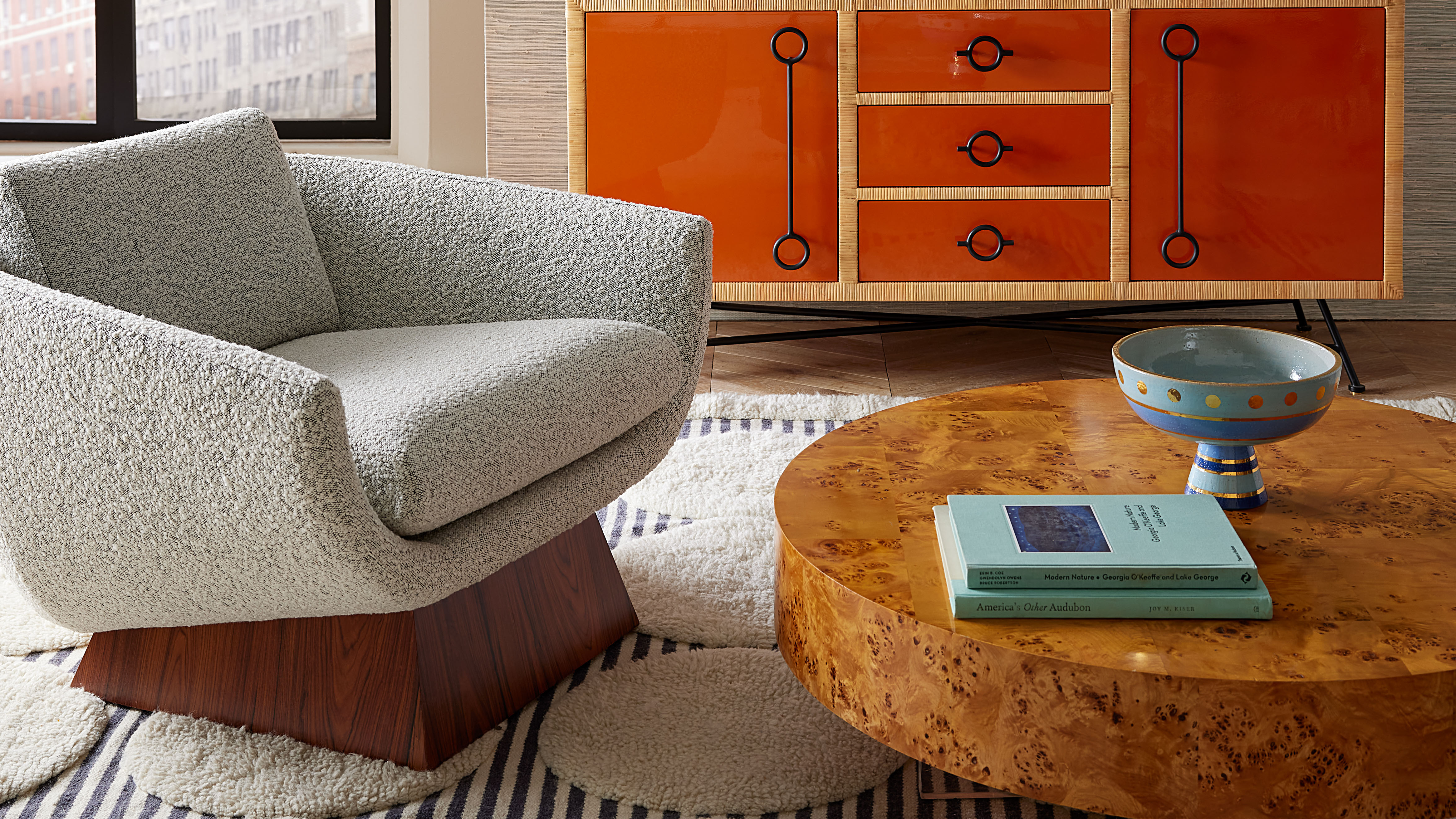 Burl Wood Decor Is 2025’s Most Coveted Comeback — Here’s How to Get the Storied Swirls for Less
Burl Wood Decor Is 2025’s Most Coveted Comeback — Here’s How to Get the Storied Swirls for LessIrregularity is the ultimate luxury, but you don’t need an antiques dealer to find it
By Julia Demer Published
-
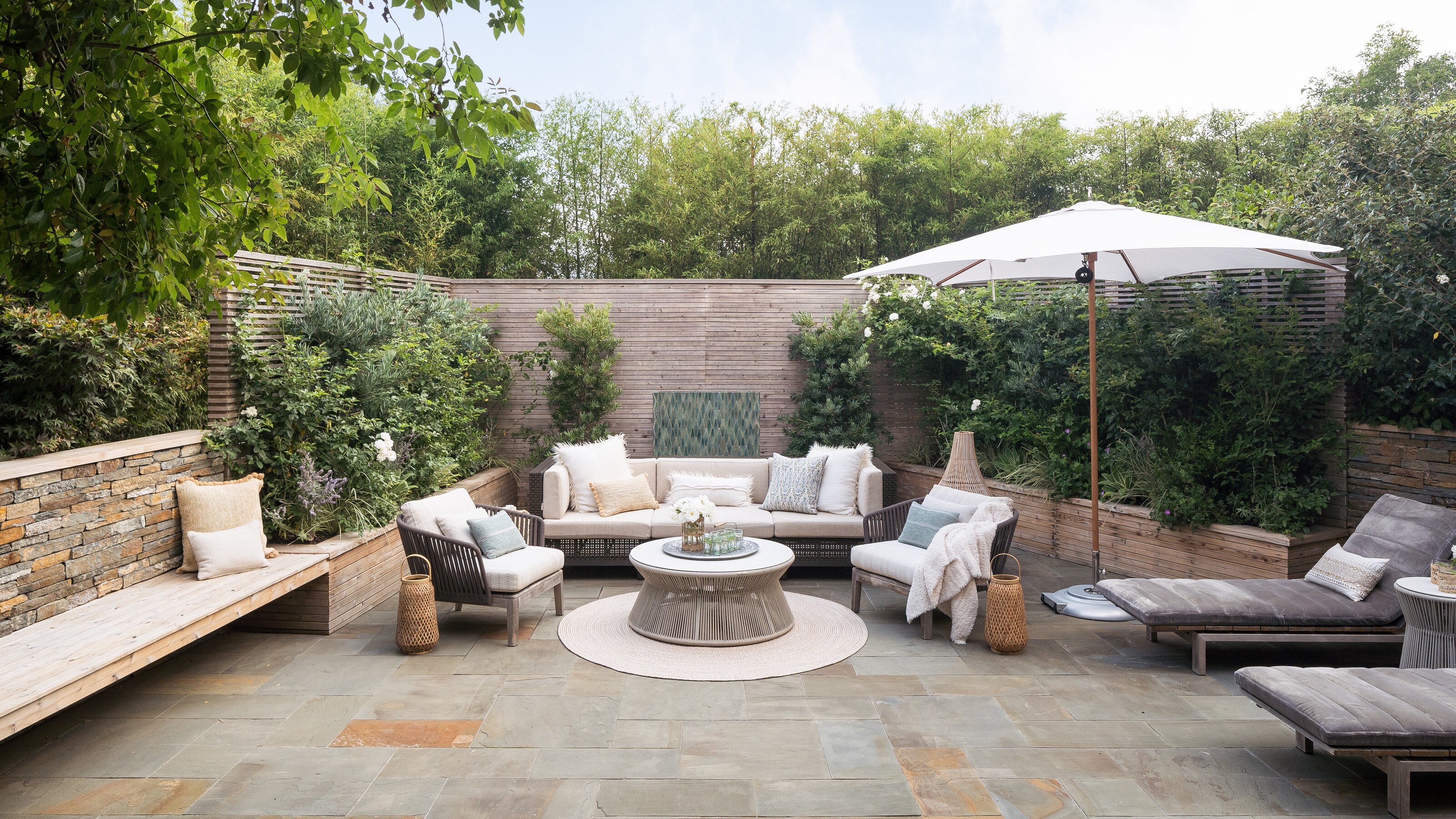 5 Garden Features That Instantly Add Value to Your Home — While Making Your Outdoor Space More Practical, too
5 Garden Features That Instantly Add Value to Your Home — While Making Your Outdoor Space More Practical, tooGet to know all the expert tips and tricks for making your backyard a standout selling point for your home.
By Maya Glantz Published
